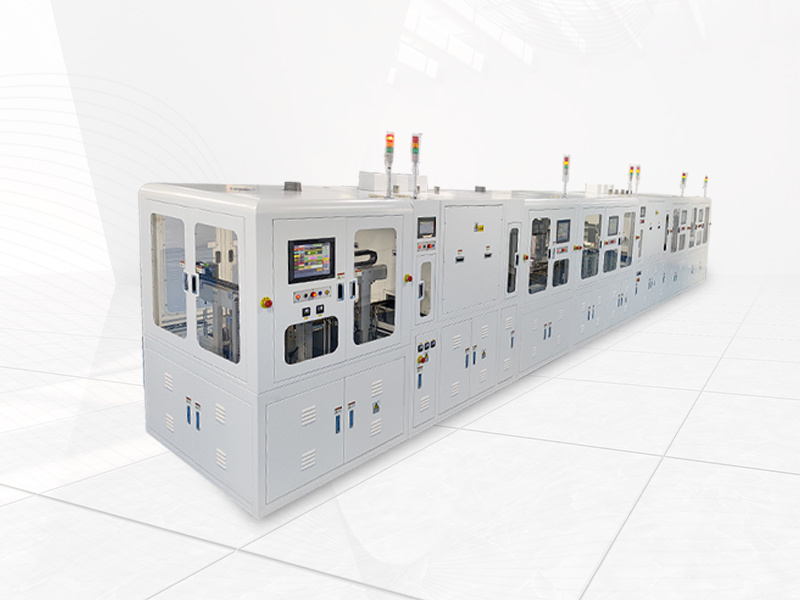Exploring the Advantages and Applications of Dipping Machines in Manufacturing
Release time:
Mar 11,2025
Dipping machines are specialized equipment designed for the efficient coating of products through submersion in a liquid solution. These machines are widely utilized in various manufacturing sectors, including automotive, electronics, and textile industries. Their primary function is to ensure uniform coverage and adherence of coatings, enhancing both the aesthetic and protective qualities of the finished products.
One of the key advantages of using dipping machines is their ability to achieve consistent and high-quality results. The process allows for complete submersion of items, ensuring that every surface area is treated evenly. This uniformity minimizes the risk of defects, such as drips or uneven finishes, which can occur with manual coating methods. Additionally, dipping machines can accommodate various shapes and sizes of products, making them versatile tools in the manufacturing process.
Dipping machines also contribute to improved efficiency in production lines. By automating the coating process, manufacturers can significantly reduce labor costs and time spent on surface treatments. This automation allows for faster production cycles and the ability to meet increasing demands without compromising quality. Moreover, dipping machines can be integrated into existing production lines, providing a seamless transition to more advanced manufacturing techniques.
In terms of applications, dipping machines are commonly used for applying coatings to items such as metal components, plastic parts, and even textiles. In the automotive industry, for instance, they are essential for applying protective coatings on car parts to prevent corrosion and enhance durability. In electronics, dipping machines are used to apply conformal coatings that protect circuit boards from environmental factors. The versatility of these machines makes them valuable assets across multiple sectors.
Furthermore, the technological advancements in dipping machines have led to the development of features that enhance their functionality. Modern machines may include programmable controls, adjustable speed settings, and automated drying systems, allowing manufacturers to customize the dipping process according to specific requirements. This adaptability not only improves product quality but also optimizes operational workflows.
In conclusion, dipping machines are an integral part of the manufacturing process in various industries, offering numerous advantages such as consistent application, increased efficiency, and versatility in handling different product types. Understanding the capabilities and benefits of dipping machines can empower manufacturing professionals to make informed decisions that enhance their production processes and product quality. As industries continue to evolve, the role of dipping machines remains crucial in achieving optimal results in coating applications.
One of the key advantages of using dipping machines is their ability to achieve consistent and high-quality results. The process allows for complete submersion of items, ensuring that every surface area is treated evenly. This uniformity minimizes the risk of defects, such as drips or uneven finishes, which can occur with manual coating methods. Additionally, dipping machines can accommodate various shapes and sizes of products, making them versatile tools in the manufacturing process.
Dipping machines also contribute to improved efficiency in production lines. By automating the coating process, manufacturers can significantly reduce labor costs and time spent on surface treatments. This automation allows for faster production cycles and the ability to meet increasing demands without compromising quality. Moreover, dipping machines can be integrated into existing production lines, providing a seamless transition to more advanced manufacturing techniques.
In terms of applications, dipping machines are commonly used for applying coatings to items such as metal components, plastic parts, and even textiles. In the automotive industry, for instance, they are essential for applying protective coatings on car parts to prevent corrosion and enhance durability. In electronics, dipping machines are used to apply conformal coatings that protect circuit boards from environmental factors. The versatility of these machines makes them valuable assets across multiple sectors.
Furthermore, the technological advancements in dipping machines have led to the development of features that enhance their functionality. Modern machines may include programmable controls, adjustable speed settings, and automated drying systems, allowing manufacturers to customize the dipping process according to specific requirements. This adaptability not only improves product quality but also optimizes operational workflows.
In conclusion, dipping machines are an integral part of the manufacturing process in various industries, offering numerous advantages such as consistent application, increased efficiency, and versatility in handling different product types. Understanding the capabilities and benefits of dipping machines can empower manufacturing professionals to make informed decisions that enhance their production processes and product quality. As industries continue to evolve, the role of dipping machines remains crucial in achieving optimal results in coating applications.








